Welcome to the 2025 Synergy Summer Studentship Program
We have an exciting line-up of professional development workshops, activities, and socials this year! You’ll find everything you need to know about this year’s events, as well as the participating cohort below.
Quick Links
Synergy Sessions
All participating students will attend workshops, presentations and networking events as part of the program.
Have Questions?
There is a lot of learning, connecting, research and preparation in the months ahead. Please don’t hesitate to reach out if you have any questions at all about the program. Our program manager Jocelyn McKay will be happy to help!
Jocelyn McKay
Research Manager
School of Biomedical Engineering
jocelyn.mckay@ubc.ca
Program Expectations
During the program, you will work on a defined research project with a UBC supervisor, gaining valuable lab experience. You will also participate in professional development programming and several student socials. The summer concludes with Synergy Research Day, where you will present your research to the SBME community. Please carefully review the schedule below. Make sure you lock these dates and times into your calendar. Interacting with speakers, networking with other students, and asking questions directly is the best way to get the most out of these sessions.
Mandatory Events Schedule
May 2: Welcome Orientation & Social
This is your chance to kick off the new program right. Meet your peers, the program leaders, and learn more about all that’s in store over the course of the 2025 Synergy schedule. This presentation is followed by a Social in the Gordon B. Shrum lunchroom (L3).
WHEN: 2-3pm
WHERE: Gordon B. Shrum 1002; followed by a social in the Gordon B. Shrum L3 lunchroom.
June 4: Lab Exploration Activity Part I & Student Social
Learn about the labs that your peers are working in, and sign up for guided tours that will happen throughout the summer. Immediately following the Lab Exploration activity, students are invited to participate in an Escape Room Board Game Social. Team up with your peers to solve mysteries using our Escape Room board games.
WHEN: 2-4pm
WHERE: Begins in Gordon B. Shrum 1002; followed by a social in the Gordon B. Shrum L3 lunchroom.
FACILITATOR: Jocelyn McKay
June 17: Indigenous Cultural Training
Indigenous Cultural Training with Maynard Angus
This workshop offers a comprehensive journey into the rich and diverse world of Indigenous history, culture, land and community leadership. Designed to foster deeper understanding, respect, and connection, the session centers Indigenous perspectives and practices while empowering participants with practical skills to support community development through relationship building and cross-cultural engagement.
Maynard Angus is the founder of Indigenous Canada Solutions and a member of the Nisga’a Nation.
WHEN: 9am-12pm
WHERE: B-1009 Gordon B Shrum Building
FACILITATOR: Maynard Angus
July 3: Maker Space Tour & Presentation Skills Workshop
MAKERSPACE TOUR
Come tour the SBME Makerspace, located in SBME’s brand new building: the Gordon B. Shrum building. Also known as The Jim McEwen Zone for Innovators, Creators and Entrepreneurs, SBME’s Makerspace is a prototyping space available to SBME students registered in undergraduate design courses. There are a wide variety of additive and subtractive prototyping tools available to students in the Makerspace, as well as basic electronic components and testing equipment (power supplies, oscilloscopes, soldering tools).
WHEN: 1:30-2pm
WHERE: Gordon B. Shrum 1009 (first floor)
FACILITATOR: Jacqueline Kho & Kevin Gilmore
PRESENTATION SKILLS WORKSHOP
Delivered as a seminar focusing on oral, graphical and written forms of communication, this session will aim to give you some familiarity with the theory and practical techniques of effective communication.
WHEN: 2-3pm
WHERE: Gordon B. Shrum 1002 (first floor classroom)
FACILITATOR: Elizabeth Castle
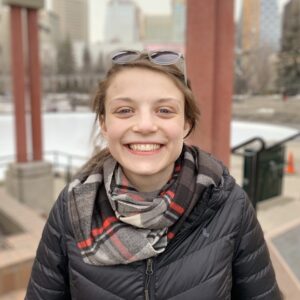
Beth completed her B.Sc. and M.Sc. degrees in Microbiology and Immunology, with a focus in Virology, at Dalhousie University in Halifax, NS. She then travelled west to start her Ph.D. in the School of Biomedical Engineering at the University of British Columbia, where her research focuses on discerning the impact of microenvironmental factors on the generation of blood cells from stem cells. Outside of her research, she is passionate about using effective communication to improve community understanding and health outcomes, through mental health and science communication initiatives. Some highlights of her science communication work include starting and hosting the podcast ‘The Unscientific Method’, designing a children’s interactive science showcase ‘The Library of Science’, and presenting her own work in association with Soapbox Science. She currently continues to host the podcast and is working to design a science demonstration for Mend the Gap, a project focused on improving spinal cord injury outcomes.
July 16: Career Exploration Panel & Lab Exploration Activity Part II
CAREER EXPLORATION PANEL
Meet and network with professionals in academia, healthcare, and industry, to learn about their career paths, and hear their advice on career development. Afterwards, head up to the rooftop patio to participate in the Lab Exploration Activity Part II over lunch.
WHEN: 11am – 12pm
WHERE: Gordon B. Shrum 1002 (first floor classroom)
FACILITATOR: Jocelyn McKay (Research Manager; SBME)
SPEAKERS:

andree wild (Product Lead; ScopeSys)
andree leads product development at ScopeSys and consults on various other projects. As an early employee at Precision NanoSystems, they led the initial development of the NanoAssemblr platform and conducted microfluidics and nanoparticle R&D. andree is a co-inventor on several patent families and holds numerous design patents. They are a graduate of the Engineering Physics program at UBC.
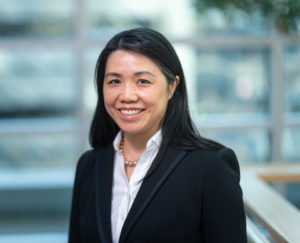
Dr. Karen Cheung (Professor; SBME)
Dr. Cheung’s research interests include lab-on-a-chip systems for tissue engineering and high content drug screening, biosensors, inkjet printing for single cell dispensing, and implantable neural interfaces. One of the Cheung laboratory’s ongoing projects is the development of lab-on-a-chip platform that use a microfluidic system with integrated micro-fabricated sensors in order to culture, characterize, image, and screen cells and microscale tissue constructs within a single automated, portable platform.
As a new paradigm for cell-based testing, this microscale platform promises to provide a simple, scalable tool to apply standardized protocols for use in cell culture systems that mimic the in vivo environment as closely as possible. Dr. Cheung’s other research projects include the development of nanophotonic biosensors and an organ-on-a-chip model of the small airway.
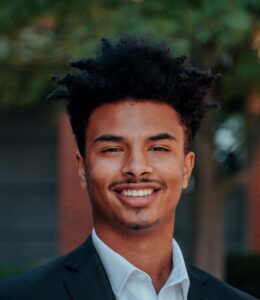
Nikolay Alabi (MD/PhD Program; 2023 Synergy Graduate)
Nikolay was born in Moscow, Russia and raised in Calgary, AB. He completed his BSc at Queen’s university with a specialization in life sciences as well as a certificate in data analytics. During undergrad, he spent his summers in Calgary working as a bioinformatics analyst for Qualisure Diagnostics Inc., a cancer diagnostics company developing new precision medicine tools. These experiences inspired him to further pursue bioinformatics research and potential applications to the field of oncology under the supervision of Dr. Simpson. His thesis investigated the ability of a gene-expression based machine learning algorithm to predict prognostic outcomes in head and neck cancer patients to identify patients for future treatment de-escalation. For his PhD, Nikolay will continue to work in the field of oncological bioinformatics, with the goal of developing new approaches and tools for personalized medicine.
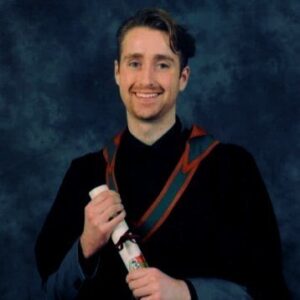
Diarmuid McGee (R&D Engineer; Total Flow Medical)
I graduated with a Bachelor’s degree in Biomedical Engineering from the National University of Ireland, Galway (NUIG) in 2019. As part of my undergraduate studies, I spent a year at Purdue University in the United States, where I expanded my academic and technical knowledge in a leading engineering environment. During this time, I also completed an internship at Fort Wayne Metals, where I worked on nitinol actuators and gained hands-on experience in advanced materials.
After completing my undergraduate degree, I pursued a Master’s in International Management at NUIG, to improve my understanding of global business and develop an innovative and strategic mindset. Following this, I joined Cook Medical as an R&D Engineer through their Graduate Development Programme. After three months, I transitioned into a full-time role and was later appointed as a goal lead, where I took on increased responsibility in project delivery and team coordination. I spent two years in this role, gaining valuable experience in product development, regulatory compliance, and cross-functional teamwork.
In 2023, I relocated to Vancouver and joined Total Flow Medical as an R&D Engineer where I continue to work to date. In my current role I play an active role throughout the entire product lifecycle of the device and have continued to gain valuable experience as an engineer.
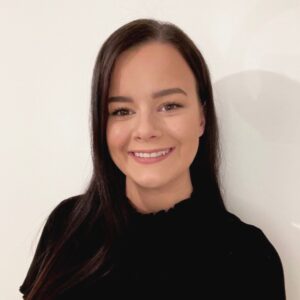
Megan Wall (R&D Engineer; Total Flow Medical)
I graduated with a Bachelor’s degree in Biomedical Engineering from the National University of Ireland, Galway in 2019. During my studies, I completed an R&D internship at Hollister ULC in Ireland, a company which specializes in continence and ostomy care products, including urinary catheters and ostomy pouches. There, I gained practical experience in medical device development, working on cross-functional teams to support product design, testing, and manufacturing. After graduation, I returned to Hollister as an R&D Engineer, where I continued to gain experience in product development. In 2022, I relocated to Vancouver and joined Total Flow Medical as an R&D Engineer. Total Flow Medical is a Vancouver-based medical device company focused on reducing costs and improving outcomes for patients who need the use of a heart lung machine. In my current role, I’m involved in all phases of the product lifecycle from early concept development through to design verification and support of manufacturing.
LAB EXPLORATION ACTIVITY PART II
Afterward the career panel, head up to the rooftop patio to participate in the Lab Exploration Activity Part II over lunch.
WHEN: 12pm-1pm
WHERE: Gordon B. Shrum rooftop patio
August 14: Synergy Research Day
Synergy Research Day is an opportunity for Synergy students to showcase their summer research projects, hear an inspirational keynote talk, and celebrate the end of the Synergy Summer Studentship Program!
WHEN: 8am-tbd
WHERE: Gordon B. Shrum Atrium
Meet Your Synergy 2025 Cohort
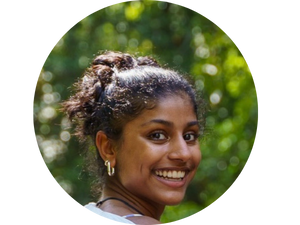
Aria Donthineni | Aria Donthineni, born and raised in California, is an incoming third year student in the UBC-BCIT Honours in Biotechnology joint program. In her free time, Aria enjoys spending time outdoors hiking, biking, and camping. Her research interests lay at the intersection of biotechnology and human physiology. She is particularly fascinated by human organs and how biotechnology can be utilized to treat organ-related diseases. This summer, Aria will be working at the Lynn Lab, under the supervision of Wayne Fan, and exploring how stem cell-derived beta cells function metabolically, with the goal of improving cell-based therapies for Type 1 Diabetes. Using a flow cytometry-based technique called SCINETH, she will analyze how these cells respond to different metabolic stresses. Through her research, Aria hopes to gain hands-on experience in flow cytometry, molecular biology, and data analysis. Aria is eager to bring her knowledge, passion, and dedication to innovative laboratory research that addresses global health challenges. |
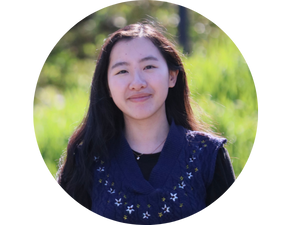
Ava Wang | Ava Wang is a fifth-year Biomedical Engineering student at UBC specializing in biomechanics and biomaterials. She is passionate about sustainability and inclusive design, and is particularly interested in how engineering programs can be shaped to better serve diverse student populations. In the summer of 2025, Ava will be working as a research assistant under the guidance of Dr. Negar Harandi and Dr. Agnes d’Entremont. Her research will delve into the decision-making processes of first-year Applied Science students when considering biomedical engineering as a major at UBC, using interviews and focus groups to understand key motivations and barriers. Through this opportunity, Ava hopes to gain hands-on experience in qualitative research methods, develop a deeper understanding of the factors influencing student decision-making, and contribute to strategies for improving equity and engagement in biomedical engineering education. In her free time, she enjoys watching movies, playing video games, and working on arts and crafts. |
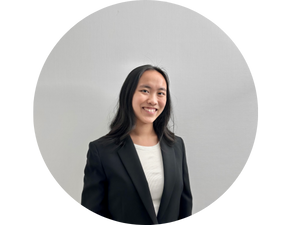
Corliss Chu | Corliss Chu is a second-year Biomedical Engineering student at UBC who grew up in Hong Kong and New Zealand. She is passionate about understanding human physiology and applying it to injury prevention and rehabilitation to help restore natural movement. This summer, Corliss will be working under the guidance of Dr. Calvin Kuo and RA Ishi Arora at the Human Motion Biomechanics Lab. The project will focus on characterizing “normal” movement patterns during sport-specific tasks to help inform safer return-to-sport decisions following anterior cruciate ligament injuries. Through this experience, Corliss hopes to strengthen her skills in biomechanical modelling, motion capture analysis, and to deepen her understanding of how these techniques can support clinical decision-making. |

Darius Khoshons
| Darius Khoshons is a second-year Neuroscience student at UBC who grew up in North Vancouver, BC. His current research interests focus on understanding how early-life stressors, such as a maternal high-sucrose diet, can shape offspring brain development and behaviour in adulthood. Under the guidance of Dr. Kiran Soma and Michelle Jung, Darius is quantifying the enzymatic activity of 17β-Hydroxysteroid Dehydrogenase (17β-HSD), which catalyzes the conversion of androstenedione to testosterone, in rat brain tissue. This summer, with support from the SBME Synergy program and the Soma Lab, he aims to build a deeper understanding of how maternal high-sucrose diets influence testosterone synthesis in the brain, with potential implications for reward-related behaviour in adult offspring. Outside of research, Darius enjoys playing guitar, lifting weights, and hiking the North Shore trails. |
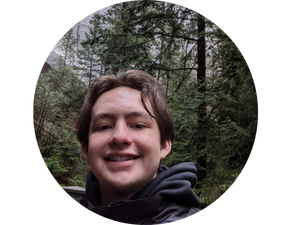
Dean Harris | Dean is a 2nd year engineering student at Capilano University from the Snuneymuxw First Nation, living in Vancouver, BC. He will be working with Engineering Researcher Danielle Rowlings and Director of the Orthopaedic and Injury Biomechanics Group, Prof. Peter Cripton. Assisting Danielle Rowlings project assessing the Anthropometry of Seated Pregnant Occupant people Using 3D Imaging. His role is to analyze images and video data using photogrammetry to construct 3D images. Dean is interested in 3D printing technologies for their versatility and using it to improve quality of life with cost effective solutions. With this opportunity Dean is hoping to gain experience with 3D scanning and modeling software. Previously assisted researcher projects by 3D modeling components for a crash test dummy and a fingerboard of a violin with concealed proximity sensors used to give feedback to violinist on technique and posture, also 3D printing using FDM 3D printers. In his free time dean likes to 3D print, canoe, and likes to blunder in chess. |
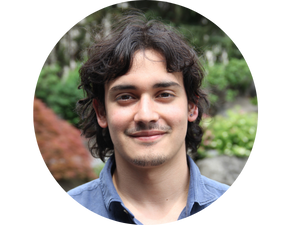
Diego Perez Hidalgo | Diego Perez Hidalgo is a third year Honours Biochemistry student at UBC. He is passionate about rethinking how synthetic biology can address global healthcare and resource challenges through innovative applications. He has contributed to student-led projects on UBC’s 2024 and 2023 iGEM interdisciplinary research teams in Vancouver and Okanagan, developing technologies such as a DNA-based data storage system and a honeybee vaccine to support agriculture. This summer, under the supervision of Dr. Nozomu Yachie, Diego will research the applicability of an electromagnetic-responsive protein domain in technologies for clone isolation using CRISPR-Cas9, DNA barcoding, and single-cell analysis. Through the SBME Synergy Studentship, he is excited to gain hands-on experience in developing responsive systems in vivo and deepen his understanding of cutting-edge molecular biology tools. |
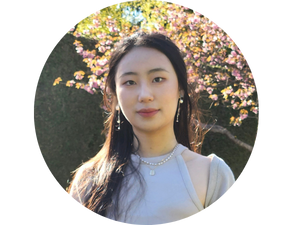
Faye Yu | Faye Yu is a third-year Biomedical Engineering student at UBC with an interest in bioinformatics and the application of machine learning for medical imaging segmentation. This summer, through the Synergy program, Faye will work with the ISTAR (Intraoperative Surgical Technologies for Advanced Reconstruction) group under the supervision of Dr. Anthony Hodgson and PhD student Hamidreza Aftabi. Her roles include processing imaging data from mandibular reconstruction patients, running computational models, and analyzing bone growth outcomes to validate a predictive model of bone union propensity. Faye is excited to strengthen her skills in medical imaging analysis and computational modelling, while contributing to the development of personalized surgical planning tools. |
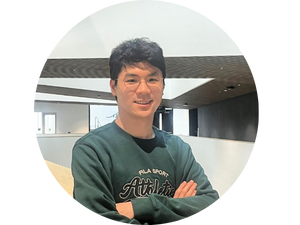
Jae-Yoon Kim | Jae-Yoon Kim is a third-year Biomedical Engineering student at UBC, specializing in cellular bioengineering. He is passionate about the field of cancer and immunology research. As a research assistant in the Yanpu He Immunoengineering Lab at UBC, he is currently utilizing CRISPR techniques to engineer an endotoxin-free bacterial strain for mammalian protein expression. Outside the lab, he enjoys competing in karate, travelling, and contributing to the UBC iGEM synthetic biology team. This summer, under the supervision of Dr. Yanpu He, Jae-Yoon will build upon Dr. He’s previous work on the Stimulator of Interferon Genes (STING) pathway by developing a Dendritic Cell-targeting cancer vaccine. He is eager to gain hands-on experience in developing therapeutic vaccines and testing their efficacy in mouse tumour models. |
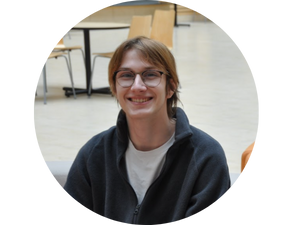
James Horvat | James Horvat is a third-year student at the School of Biomedical Engineering at UBC. He is passionate about cancer research, immunological research, and science communication. James is working at the Laboratory of Microtechnologies for Quantitative Biomedicine at the Vancouver Prostate Centre under Dr. Aditya Kashyap and Dr. Govind Kaigala. Here, James will be working on the spatial extraction of live cell material from 3D in vitro tumor models using microfluidic technology. His past projects include designing a prostate cancer immunotherapy and presenting the process and results to a global audience in Kitakyushu Japan. With the Laboratory of Microtechnologies for Quantitative Biomedicine, James hopes to improve his wet laboratory and technical communication skills while gaining a deeper understanding of biomedical engineering research. |
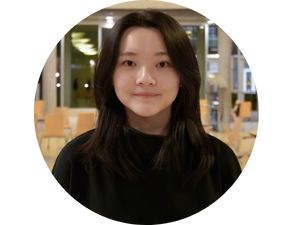
Jessica Xin | Jessica Xin is a third-year Biomedical Engineering student at UBC, specializing in cellular bioengineering. Jessica is interested in biomaterials and immunoengineering to develop targeted therapeutics. In her free time, she is involved with UBC iGEM, a synthetic biology design team, as a dry lab lead, expanding her interests in biomaterials and hardware integration. This summer, Jessica will be working under the supervision of Taehyun Kim, PhD Candidate at Dr. Kelly McNagny’s Lab, to develop and evaluate a lipid nanoparticle (LNP) therapy for treating neutrophilic asthma. She is excited to contribute to establishing an in vivo neutrophilic asthma model and building upon immunological research. |
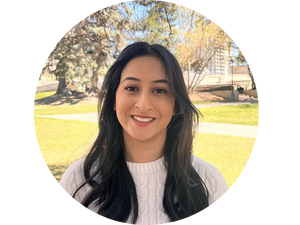
Karina Kumar | Karina Kumar is a fourth year Biomedical Engineering student at UBC, specializing in Biomechanics and Biomaterials. Throughout her degree, she has been passionate about engineering applications to orthopaedics and injury biomechanics. Through the Synergy program, Karina will be working under the guidance of Dr. David Wilson at the Centre for Aging SMART. She will help develop a new MRI-based method to understand cartilage mechanics and how joints like the knee and hip transmit load. Having gained industry experience through her previous co-op terms, Karina is looking forward to working in a research environment. She is excited to not only gain skills in validating test rigs, analyzing data, and preparing and harvesting load testing specimens, but also to work on cutting-edge research and innovative solutions. |
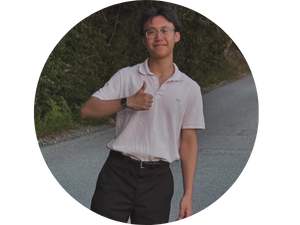
Leo J. Chung | Leo — a sophomore Neuroscience student at UBC — was born and raised in Vancouver. His research interests focus on uncovering the pathways underlying neuropsychiatric disorders in individuals with IBD, and exploring how epigenetics may shape mental health disorders. This summer, he looks forward to pursuing his fascinations with Dr. Annie Ciernia at the DMCBH, with whom he has conducted research with over the past year. His project will involve using human microbial-transplant mice models to investigate how IBD-associated microbiomes influence brain function and microglial development. By employing a “humanized” model of IBD, his work aims to capture critical developmental pathways, which will have clinical relevance through aiding therapeutic development. Ultimately, Leo hopes his findings and work can be used to improve the betterment of others, and is excited to continue his work over the summer. Outside of research, Leo enjoys discovering new foods and biking through Vancouver on sunny days. |
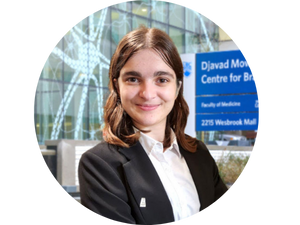
Leticia Cid | Leticia Cid is a second year biomedical engineering student with a passion for all things neuroscience. She has spent the past year as a research assistant in the Neural Circuits for Cognition, Computation, and Control (NC4) Lab, led by Dr. Manu Madhav. There, she has contributed to several ongoing projects, developing skills in data analysis, animal care, and apparatus design, while gaining an understanding of the research process. This summer, she will lead a research project investigating neural algorithms underlying decision-making and navigation in rats under the supervision of Dr. Manu Madhav. Through this work, she looks forward to honing her skills in experimental design, software development, and animal training, as well as acquiring new skills in implant design and rodent surgery. Leticia is also eager to strengthen her project management abilities, including planning timelines, coordinating logistics, and managing schedules. |
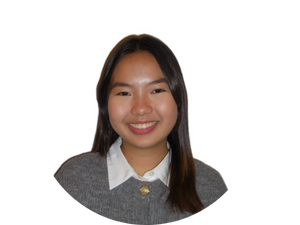
Lex Lizares | Lex Lizares (she/her), born and raised in the Philippines, is an incoming third-year student in the UBC-BCIT Honours in Biotechnology (BSc.) joint program within the Faculty of Science. She is interested in the health and medical applications of biotechnology. Lex is particularly passionate about vaccine research and development, as well as the use of lipid nanoparticles (LNPs) for targeted drug delivery. This summer, Lex will be working under the supervision of Petya Popova, PhD Candidate in Biomedical Engineering, at the Blakney Lab at the Michael Smith Laboratories. Their project will focus on developing a Chlamydia vaccine using self-amplifying RNA (saRNA) formulated with LNPs. Through this experience, Lex hopes to deepen her understanding of RNA-based technologies, vaccine design, and nanoparticle formulation, while gaining hands-on experience with molecular biology techniques. Outside academics, Lex enjoys cafe hopping, experimenting with new recipes, and expressing creativity through science communication and design. |

Raj Dillon | Raj Dhillon is a fourth-year biology student at UBC, who grew up in Winnipeg, MB. His grandparents and passion for the outdoors, including camping and hiking, have inspired his interest in longevity research, specifically personalized medicine approaches that aim to enhance both healthspan and lifespan. His previous research involved studying ion channel regulation and the effects of oxidative stress on stress tolerance and longevity in S. cerevisiae. He has now transitioned into cardiovascular research and is currently an undergraduate researcher at St. Paul’s Hospital, supervised by Dr. Zachary Laksman. For his Synergy project this summer, he will work with Swetha Raghavan in the Laksman lab. He will further optimize hiPSC differentiation protocols into cardiomyocytes and utilize CRISPR Prime Editing to explore how genetic variants associated with atrial fibrillation impact cardiomyocyte function, gene expression, and electrophysiological properties. |
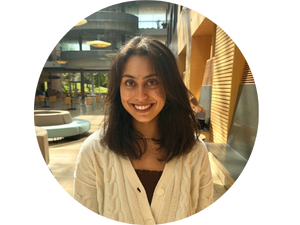
Riya Gandhi | Riya Gandhi is entering her fifth year as an Honours Integrated Sciences (Neuroscience and Pharmacology) student at UBC. Her research interests focus on exploring the cellular and molecular correlates of fear, anxiety and depression, using histology and spatial transcriptomics. Riya is currently a Co-op student in the Cembrowski Lab, where she will continue her research this summer with support from the SBME Synergy program. Under the supervision of Dr. Mark Cembrowski, she will identify constituent cell types in the human hippocampal-amygdaloid transition area, and aims to understand how the functional roles of these cells may be dysregulated in major depressive disorder. She is looking forward to combining her prior knowledge of wet-bench techniques with computational neuroscience, and is excited to develop her skills in R programming through this project. Outside of the lab, Riya enjoys running outdoors and reading. |
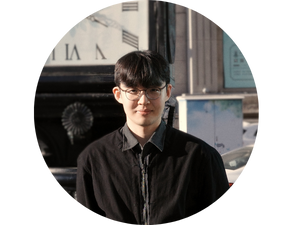
Shawn Oh | Shawn Oh is a fourth-year Biomedical Engineering student at Korea University, who recently completed a term as an exchange student at the University of British Columbia. He has a strong interest in medical devices and neuroregeneration, and is particularly fascinated by how microfabrication and biomaterials can be used to promote tissue repair in the nervous system. Previously, he worked on an optogenetics-based retinal degeneration project, combining viral delivery with behavioral analysis in mouse models to explore functional vision restoration. This summer, Shawn is conducting research in the Molecular Mechatronics Lab under the supervision of Professor John Madden, where he will investigate scalable fabrication techniques for anisotropic hydrogels aimed at supporting spinal cord regeneration. Through the Synergy program, he hopes to deepen his understanding of biomedical engineering, build technical skills in soft material processing, and collaborate with interdisciplinary researchers working at the interface of materials science and regenerative medicine. |

Simren Ahuja | Simren Ahuja is a second-year Neuroscience student at UBC, intending to minor in Data Science. As a Pilates instructor with the UBC Pilates Club and volunteer with BC Brain Wellness programs, Simren is passionate about fitness and understanding the cellular impacts of exercise-related brain injuries. Combining her academic and fitness interests, she will be working as a research assistant in the Wellington Lab, studying changes in the concentration of blood-based biomarkers linked to sports-related concussions this summer. Under the supervision of Dr. Cheryl Wellington, Simren will use samples from high-school athletes to analyze biomarker concentration changes from baseline to post-concussion and effect sizes, with the goal of enhancing concussion diagnosis. She is excited to gain hands-on experience in statistical analyses on large datasets and to deepen her knowledge and technical skills related to clinical research in brain injury. |
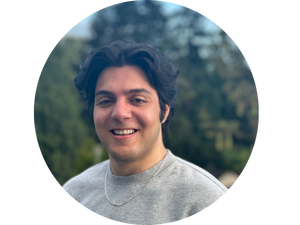
Soroush Torfehnejad | Soroush Torfehnejad is a second-year Microbiology and Immunology student at UBC who is eager to begin his research journey in the Hirst Lab. Over the summer, under the supervision of Dr. Martin Hirst, he will use CRISPR-Cas9 gene-editing technology to target key proteins in established synovial sarcoma cell lines and assess the effects of these genetic alterations on cell survival and proliferation. Since survival rates have remained stagnant despite surgical and radiotherapeutic interventions, Soroush hopes to use this technique to help develop more effective and personalized treatment strategies for patients with synovial sarcoma. He is grateful for the opportunity to gain hands-on experience in modern epigenetic research methodologies, genetic manipulation techniques—specifically CRISPR-Cas9—, cell-based assays, and the theoretical basis of epigenetic regulation in cancer. When he is not in the lab, Soroush works as the head dive coach for the Coquitlam Sharks, and enjoys running, practicing piano, and reading. |
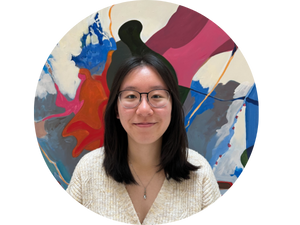
Tiffany Xie | Tiffany Xie is a fourth year student in the UBC-BCIT Honours in Biotechnology program with an interest in genomics and precision oncology research. This summer, Tiffany will be working in Dr. Alexander Wyatt’s lab, where she will be assessing the frequency and clinical relevance of structural variants, a class of large genomic alterations, in lethal metastatic prostate cancer. Tiffany is looking forward to developing her bioinformatic skills and gaining a deeper understanding of cancer genomics and translational research. |
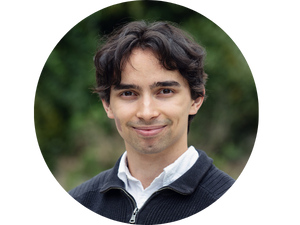
Tomme Ashton | Tomme Ashton is a third-year undergraduate student in the Electrical Engineering program at UBC. He is interested in the intersection of electronics, materials, and healthcare technology, with a particular focus on embedded systems and user-centered assistive devices. This summer, he will be working under the supervision of Dr. John Madden in the Madden Lab on a project focused on developing and evaluating stretchable pressure sensors for wheelchair users. The goal of the project is to create soft, flexible sensors that monitor real-time pressure distribution and help prevent pressure ulcers by alerting users and caregivers to harmful pressure buildup. Tomme hopes to deepen his knowledge of stretchable electronics, sensor fabrication, and signal processing while gaining hands-on experience with experimental design and testing. He is excited to contribute to research that addresses real-world health challenges and looks forward to building technical and collaborative skills that will support his long-term goal of innovating in the biomedical technology space. |
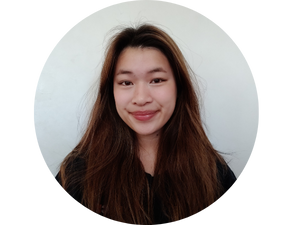
Victoria Chong | Victoria Chong is a third year Biomedical Engineering student at UBC. She is passionate about regenerative medicine and engineering stem cells to improve health. She will be working as a research assistant in the Zandstra Stem Cell Bioengineering Lab investigating the role of intracellular domains in the development of CAR-T cells with tunable killing efficacy, cytokine secretion and persistence. In her free time, she enjoys playing piano, journaling, and engaging in retail therapy. At the Zandstra lab, she hopes to learn how to perform critical research techniques to advance cancer therapeutics. |
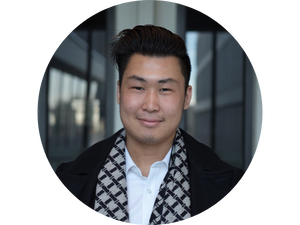
William Ji | William Ji is a fourth year Biomedical Engineering student at UBC who is highly interested in the development of therapeutics for serious diseases. He is currently a co-op in the Michael Smith Laboratories (MSL) at UBC investigating analytical tools to support biomanufacturing operations for production of cell therapies. Previously, he also worked on developing microreactor devices to improve the efficiency of radiopharmaceutical syntheses at TRIUMF. Outside of work and academics, William likes to spend his time at the gym, playing golf, and DJing. William is further looking forward to applying his background and continuing studies in biochemistry and engineering towards his Synergy project this summer. Under supervision from Dr. James Piret and in collaboration with Dr. Govind Kaigala, he will be working on microfluidic devices used for characterizing cell populations relevant to bioreactor systems with Raman analysis. |
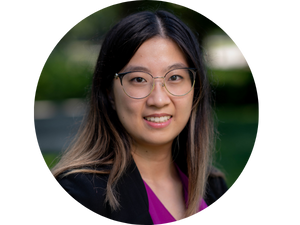
Yundi Wang | Yundi Wang is an incoming second-year medical student at the University of British Columbia. She previously completed her PhD in Neuroscience, where she investigated cortical brain changes in neurodegenerative disease in addition to the physiology and pharmacology of cardiac ion channels implicated in arrhythmias – reflecting her evolving research interest in the intersection of brain and heart health. Outside of research, Yundi is actively involved in advocacy and mentorship through her roles with the Canadian Medical Hall of Fame, The Vascular Training (VAST) Platform and other non-profit organizations. This summer, Yundi will be working under the supervision of Dr. Thalia S. Field where she will examine how differences in MRI brain volume, regional brain morphology, and sociodemographic and clinical factors influence cognitive function and quality of life in adults with congenital heart disease (CHD). Through her Synergy project, Yundi looks forward to working across disciplines to better understand how neurologists and cardiologists can collaborate to optimize care for adults living with CHD. |